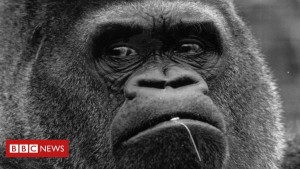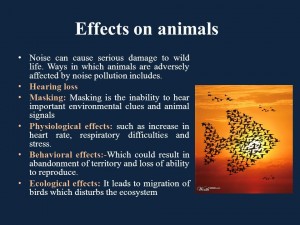
Animals Behind Bars: Why Make Their Lives Even Harder?
May 31st, 2019
I have always had issues with zoos. As a young girl, I found myself gazing into the sad eyes of a lonely silverback lowland gorilla at London Zoo. It is a vivid memory. He was a famous gorilla named Guy, who lived a long life – mostly in solitary confinement. When he was finally introduced to a mate, there was no chemistry at all – so there were no little baby Guys. There is a statue of Guy at London Zoo.
The only parties at the Zoo I recall as a child were the “Chimpanzees Tea Parties” (I cringe at the thought, but at age six or so I thought they were wonderful). The chimps would sit around a table and eat (or be fed by a keeper) from bowls and drink cups of tea. When the food was done, they would invariably start misbehaving, jumping on the table and throwing the bowls and plates at each other.
Well, I saw an article online: London Zoo under fire for hosting late-night parties near animals. In an effort to make more money (I suppose) and attract new customers, museums and other institutions in the city are in the habit of hosting “night events,” ranging from performance art and poetry readings to live music, acrobats and film shows.
Harmless enough, you might think. But zoos…? Don’t the animals need to sleep at night, before a new crowd of humans arrives the next morning to make their lives a misery? After all, we are talking about animals here – not statues and exhibits. These are sentient beings. They need their rest, too.
Unfortunately, though, the animals are exhibits, behind bars. They can’t get up and leave when there is loud disco music blasting in their ears. Reportedly, at London Zoo the animals have been subjected to drunken partygoers pouring their drinks over them, and many other frightening experiences. Aren’t they suffering enough from their loss of freedom?
All this rang a bell with me. I don’t live in Hope Pastures, but I empathize with residents who are tortured by the noise coming from the once tranquil Hope Gardens – and even from the Zoo itself (and I don’t mean the animals’ cries – I mean human noise pollution). Almost every week a party or big social event is advertised. So residents as well as the animals are suffering, and have been for the past few years, increasingly so. Is this fair?

Hope Gardens: Once a peaceful place to just “chill.” Cities need places like this – not another party venue. (My photo)
I remember when Hope Gardens and Zoo was a quiet space – a place to escape to, where the loudest noise was the squawking parrots. Now parts of the Gardens are becoming degraded physically by the trampling of too many feet (except for the concrete Chinese Garden, which no one visits anyway). The Zoo is beautifully landscaped now; but how are the animals doing?
Again, as in London Zoo, which will be turning into a nightclub for two months this summer…it’s all about the money. Hope Gardens and the Zoo need money for their upkeep, we are told. So they are sold out to the nearest party promoter, who is also looking to make money. And the humans of Hope Pastures, and the animals of the Zoo, who happen to live there…Well, they will just have to put up with it.
Global studies have shown that our increasingly noisy environment affects wildlife negatively. Animals and birds become nervous and fearful, their heart rates increase, some may experience hearing loss and they may even run away from their regular habitats. Of course, our imprisoned zoo animals have nowhere to run to.
Jamaica is a noisy place at the best of times. Even “family friendly” events at the Zoo, involving microphones, music, and screaming children, would upset the animals. As for the alleged dancehall sessions and packed crowds in the Gardens that people are complaining about, those would also impact the animals, who are close by.
And by the way, what is the purpose of a zoo? Are the animals mere decoration, a backdrop for human excesses – or do they deserve to be treated with care and respect?
Tags: chimpanzees, entertainment, gorilla, Hope Gardens, Hope Zoo, Kingston, London Zoo
The Gleaner reserves the right not to publish comments that may be deemed libelous, derogatory or indecent.
To respond to The Gleaner please use the feedback form.
3 Responses to “Animals Behind Bars: Why Make Their Lives Even Harder?”
- We Are the Zoomers
- Living Online with Humans and Birds: NAOC 2020
- Human Trafficking and the Problem of Public Education
- Down Memory Lane
- Are We Ready to Recover from COVID-19?
- Road Safety Matters: Is Your Vehicle Safe?
- Sexual Harassment, Me Too, and the Minister’s Disturbing Giggle
- The Vulnerable Senior Citizens, Private Care Homes and COVID-19
- A Muddle Over Masks
- Here is Something Life-Saving You Can Do: Give Blood!





This is an issue that needs support. We humans in Jamaica are subjected to noise on every single corner. If there isn’t a bar, there is a car whose driver thinks everyone should listen to his or her pounding music. We need to start talking about sound and light pollution. Do we not have groups that want to rent the place and play soft, calming music? Are we only a culture of noisy music people? If we can’t keep up the zoo without resorting to blasting music every few weekends, then perhaps we need to close the zoo and not put the animals into such suffering.
Where are all the animal rights people? Or do they not understand the effects of noise on animals?
Dear Lorri: Thank you for your comment. Yes, we are just too loud altogether! It’s true. Sometimes a car stops outside our house very early in the morning playing really loud music, and we have to go out and ask them to go away! There are groups who would have nice acoustic background music, of course! I think it’s not only animal rights people (whoever they are) who need to speak out about this. We all should, for the sake of a more calm and harmonious society. At the end of writing this article I began to wonder whether there was any point in having the zoo. What purpose does it serve?
[…] breathing – among humans (like Hope Pastures residents and those living in the inner city) and animals too (like those animals behind bars at Hope Zoo, who are impacted by noisy parties and events on a […]